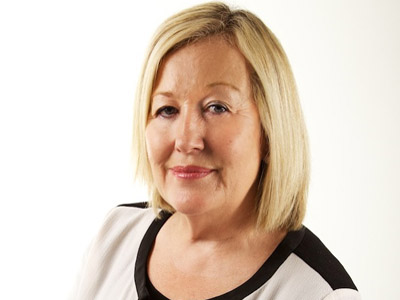
The College of Social Work (TCSW) could take on the role of regulating social workers in England if ministers accept the recommendations of Martin Narey’s education review, published today.
Narey said there was “limited expertise in children’s social work” within the current regulator, the Health and Care Professions Council (HCPC), and argued that its approval process for social work courses did not give any assurance that could not be provided by TCSW.
Both the HCPC and TCSW currently prescribe professional standards for social workers and approve or endorse higher education courses. Narey was critical of both organisations’ inspection processes and suggested these functions could be combined to better effect.
“The fact that the HCPC has been keen to conduct inspection visits simultaneously with TCSW (so there are two teams present on the same day, but measuring compliance against different documents) betrays an unnecessary duplication,” he said in his report.
“I question the utility, including the value for money, of HCPC involvement either in the registration and regulation of social workers, or in the approval of social work degree courses.”
He suggested TCSW’s financial viability would be strengthened through registration fees, which currently go to HCPC, while the “duplication, confusion and expense” caused by the overlap between their functions would be removed.
Narey has therefore recommended that the Department for Education (DfE) should consider transferring responsibility for regulating social workers to TCSW.
Narey admitted that some conflicts would arise from this proposed arrangement and would need to be managed. “For example, the college, which advocates for the profession, would have to conduct fitness to practice hearings for individual professionals,” he said.
But he added: “Credible and independent arrangements could easily be formulated.”
Strengthening the endorsement scheme
Professions are often regulated by one organisation, while a separate body upholds standards of professionalism, but Narey said he was “not convinced that such a model is necessary for social work in England”. He noted that the Care Council for Wales registers and regulates students and qualified social workers, as well as approving university social work programmes.
Narey said the real challenge facing TCSW would not be in demonstrating its ability to deal with registration, but in the need considerably to strengthen what would be, in the absence of HCPC’s approval system, the only audit of higher education social work study.
“It is a matter for the college board whether they want to take on that challenge which, inevitably, will strain relationships with some in academia (although others will welcome audit by a single body),” he said. “I hope the college grasps the opportunity.”
Narey said TCSW would need to “radically increase the rigour of the endorement scheme”, which should be made compulsory for all institutions offering the social work degree.
A higher education institution (HEI) unwilling to agree to the endorsement process should not be allowed to train social workers and TCSW must be willing to fail institutions, temporarily or permanently, and to publicise such failings.
“If the college membership is unwilling to agree to this more robust role for the college, an alternative assessor of the quality of social work education at individual HEIs will need to be found,” he concluded.
‘Equal to the challenge’
In response, Jo Cleary, chair of TCSW, said: “The college is equal to the challenge set out for us by Sir Martin and we look forward to discussing both sets of recommendations (Narey’s report and David Croisdale-Appleby’s as yet unpublished review of social work education in adult services) with the government in due course.
“Sir Martin has proposed some significant changes in social work education and regulation of the profession. His recommendations would have considerable implications, both for the college and our members, employers, academics, other partners and stakeholders. We will work closely with them, the government and the chief social workers, to consider the implications of these proposals.”
She added that TCSW fully supported Narey’s recommendation to strengthen its endorsement framework.
A ‘bizarre’ suggestion
Andrew Webb, president of the Association of Directors of Children’s Services, echoed Cleary’s words, saying he believed TCSW was “equal to the challenges the report lays at its door”. He also noted that employers “should and could do more” to shape social work education and training and vowed to support them to work more closely with universities and TCSW to do so.
However, Bridget Robb, chief executive of the British Association of Social Workers (BASW), said she was “shocked” by the suggestion that TCSW should take over regulation.
“BASW has always been committed to the idea that regulation is a matter of public protection. It is not self-regulation by the profession. Any model that would induce that we would fight,” she said.
“In principle, we don’t think that’s a good idea. In practice, the college has no record or proven ability to govern, so it seems bizarre to suggest that they are in the position to take on this crucial role.”
HCPC: ‘We have confidence in our standards and processes’
Marc Seale, chief executive of the HCPC, said: “We are confident that our standards and processes are fit for purpose and complement existing mechanisms for the delivery of health and social care education. We have worked closely with the social work community to develop these.”
HCPC chair Anna van der Gaag added: “The HCPC’s review of the 234 social work education programmes in England is currently underway. To date, we have scrutinised half of these and conditions have been placed on all programmes reviewed so far.
“We are aware that there are issues with entry requirements, programme design and placements and we are working with the sector to identify and address these. However, if anyone is aware of poor programme delivery they should inform us immediately and we will investigate.
“The HCPC welcomes any initiatives that are designed to drive up standards within the profession and we will discuss the report in detail at the next meeting of council in March 2014.”


 Social Work England: no checks on CPD sample following registration renewal for second year running
Social Work England: no checks on CPD sample following registration renewal for second year running 
 Facebook
Facebook X
X LinkedIn
LinkedIn Instagram
Instagram
The purpose of social work is to be able to respond to the changing needs of society. I think the odious Gove need look no further than the main perpetrator of change in the UK and that is Govt policy. A medal to meddle for him then! The social work market buoyant at the moment! But let’s examine that. Agencies not keen to take on newly qualified, preferring experienced staff. Needing experinced staff highlights the level of need out there doesn’t it? Ltd company SW positions with offshore accounts doesn’t bring revenue back into the country. Locum SW roles paying too much, strip the profession of funding just as it does for the NHS and locum doctors and of course marginalises the relationship between the client and the SW or doctor when their is a high turnover of professional involvement as you have to form professional relationships in teams as well as with clients and avoiding disguised compliance. The first year of SW degree covers all professionals that will go on to either be YOS, Probation or SW and whether that will be Adult, child or one of the other strands such as disability within the SW strand. If the degree is over subscriptive and the SW for children (still under the auspices of councils)whereas the rest comes under the NHS then too much divide and rule creates just that – divide and rule. Agency work which pays too much, puts nothing back into the profession for it to grow, locum positions to maximise personal growth, doesn’t allow the profession to be growqn and exported as a skillset. It is a broad brushstroke occupation that takes time to strip down the levels of the client to allow him or her to grow and move forward, coming to terms with the past, present and future. Manipulation vs open dialogue. entrenched behaviour patterns. The last thing SW needs is another divide to offer the client – reduction of a reduction means you are looking at it through the eye of a needle. Gove got time on his hands prior to the end of oiffice and looking for something to get involved in which will end up in a vote of no confidence – what’s that old adage? Empty vessels make the most noise?